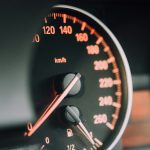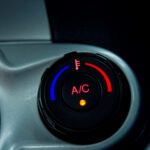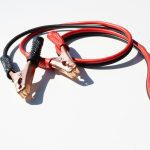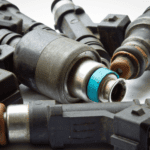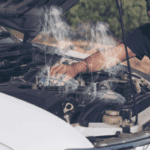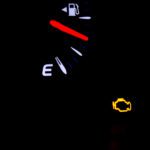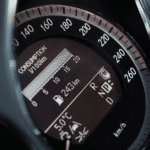An engine hesitation when accelerating comes in many different varieties; it can just be a delay between pressing the accelerator and the car accelerating, described as the engine stuttering or even a shake when accelerating.
This article refers to all the different types of engine hesitation and shakes. Unfortunately, that means there is no one particular item to change that will fix this problem. Some causes, such as coil packs and leads, are more common than others, but it depends on the exact symptoms. Read on for more information.
11 Causes of Engine Hesitation
- Throttle position sensor – The throttle position sensor (TPS) controls the air drawn into the engine. When a TPS starts to fail, the first issue is usually a rough idle. When driving along, the amount of air sucked into the engine can be inconsistent with the fuel quantities needed, which causes hesitation and poor performance.
- MAP or MAF sensor – Both the mass air flow (MAF) and the manifold absolute pressure sensors (MAP) impact the air/fuel mixture like many of the components on this list. A faulty MAF/MAP will cause the engine to jerk or hold back under acceleration because it runs ‘lean,’ meaning it doesn’t get enough fuel when accelerating. Cleaning and resetting the MAF/MAP sensor can commonly cure the fault.
- Timing – Although the timing being out is not something that goes wrong and is usually created by incorrectly setting the timing when changing the cambelt. If the engine timing is out, it causes the engine combustion cycle to run at the wrong times. This can cause a minor misfire if it’s not too far out, which is noticeable as the engine hesitating under acceleration.
- Fuel supply – Fuel starvation or an incorrect spray pattern can cause disturbances to the burn cycle in the engine. Any change to quantities or how the fuel is injected into the engine will change how the vehicle reacts under acceleration. This issue could come from the injectors, the fuel pump, and the fuel filter, anywhere fuel passes through to get to the engine.
- EGR Valve – The exhaust gas recirculation valve recirculates some of the exhaust gas back into the engine to be re-burned. This is done to reduce the amount of pollutants emitted from the exhaust system and improve fuel efficiency. The car’s ECU responds to a working EGR valve by altering the air and fuel supply. A blocked EGR valve will affect the air/fuel mixture pumped into the cylinder, which will cause an engine to misfire and hold back under acceleration.
- Carburetor – A carburetor is fitted to most older vehicles, whereas modern cars use fuel injection systems. A common issue with carburetors is they become dirty, the internal components wear, and the inner parts of carbs can stick, which all cause the engine to run rough. Alongside many other running issues, carbs are temperamental and need overhauling regularly. If your car has a carbed engine and is hesitating when accelerating, this may be the cause in some way or another.
- O2 Sensors – Oxygen sensors are on either side of the catalytic converter; they tell the ECU to adjust the fuel injected into the engine based on the oxygen content of the exhaust gas. O2 sensors can go faulty and cause the engine to run lumpy for many reasons, but wear and tear is the most common. Another issue with a defective O2 sensor is it can tell the engine to over-fuel, which will cause a catalytic converter to clog, causing the engine to hesitate and run rough.
- Spark plugs – If the spark plugs in your car are faulty, corroded, oil-fouled, or at the end of their life, they will no longer be able to ignite the fuel/air mixture in the cylinder. They don’t all usually fail at once, so this may mean that your car’s engine will run at least one cylinder down, which can significantly impact how your car drives and accelerates.
- Coil pack/Ignition leads – When a coil pack breaks down or fails, it can cause a weak spark or no spark in the cylinder, resulting in the engine not firing correctly. This can lead to problems such as engine misfires, rough idling, and reduced power and acceleration. In most cases, the engine management light will illuminate to alert you of the problem. However, in the early stages of the problem, engine hesitation during acceleration may be the only noticeable symptom.
- Clogged Air Filter – The role of the air filter is to prevent harmful debris from entering the combustion chamber and causing damage to the engine. However, if the air filter becomes clogged or dirty, it may restrict airflow into the engine. This could cause the engine to hold back and struggle when accelerating due to insufficient air intake.
- Turbocharger – Cars with a turbo get an additional boost of power when the turbocharger kicks in at around 2-3000 rpm. However, a failed turbo will cause the engine to hold back or stutter on acceleration. The common cause for a turbo to fail is running the engine low on oil, which will damage the bearings inside the turbo.
What Does It Mean When Your Car Engine Hesitates?
If your car struggles to accelerate or hesitates, it usually means that there’s either not enough air or fuel going into the engine or the spark isn’t strong enough. All of the reasons mentioned above that cause engine hesitation will restrict one of these, which in turn causes the engine to hesitate.
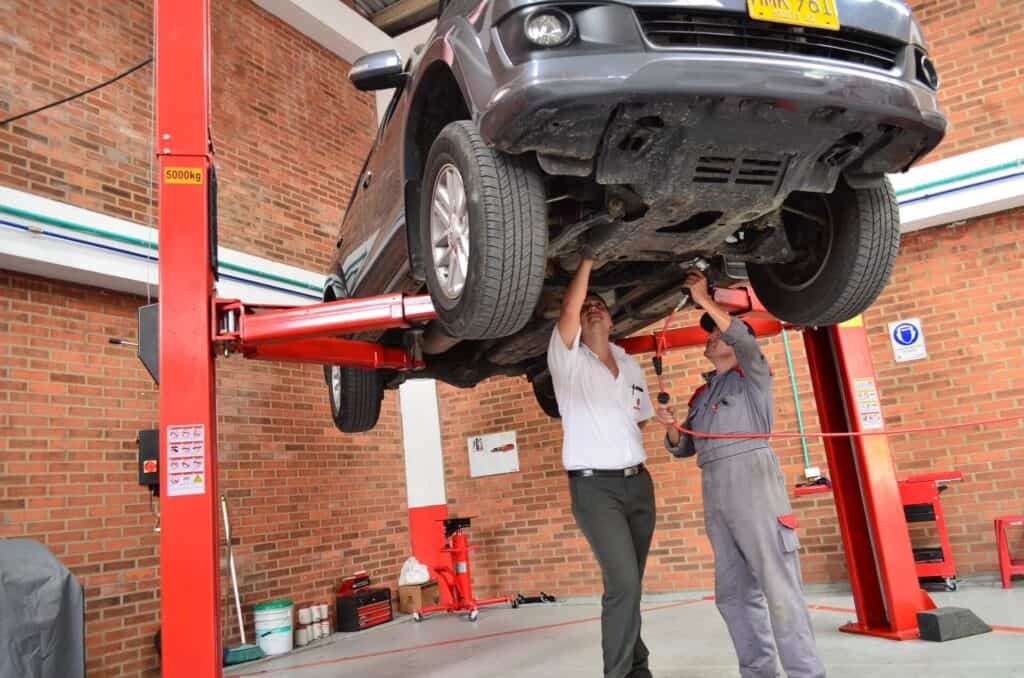
Is It Safe to Drive With an Engine Hesitating?
To say it is safe to drive is to assume you know the cause of the engine hesitation and that it won’t get worse. A short journey across town will probably not cause immediate problems, but issues such as the car running lean could damage other vehicle components.
If the issue becomes very bad, the car could activate the limp home mode, putting you in a worse position if you’re far from your destination. So, it is best to plan only short journeys when you know your vehicle has an engine hesitation problem if you must drive.
How Do You Fix Engine Hesitation?
The standard procedure for fixing a vehicle with engine hesitation for any mechanic is to plug the car into a diagnostic machine and check for faults stored in the ECU. Sometimes, a diagnostic machine will pinpoint the exact failure. If it doesn’t, it is a case of driving connected to the diagnostic machine, checking the data — air/fuel mixtures, and operating different sensors to locate the issue.
There are instances where specific vehicles have common faults, so you can make a very educated guess about what the problem is; for example, one that always springs to my mind is when a Vauxhall Astra comes into the garage with engine hesitation and rough running, I know it’s either down to a coil pack breaking down or the MAF sensor faulty—the engine management light on and a fault code usually back up both issues.
Frequently Asked Questions
Can Bad Spark Plugs Cause Hesitation When Accelerating?
Bad spark plugs can cause the engine to hesitate. The spark plugs provide the spark to ignite the air and fuel mixture. Without a good strong spark the mixture will not ignite correctly meaning the engine will not run smoothly.
Can A Bad Battery Cause Engine Hesitation?
It is very rare for a bad battery to cause engine hesitation. Once an engine is running the alternator takes over providing power to all electrical components.
Bottom Line
If your car’s engine hesitates while accelerating, it is usually safe to drive on short journeys. With the motor running rough, you risk damaging other parts, such as the catalytic converter, which is expensive to replace, so you should only consider driving as a last resort.
Sometimes, the reason for engine hesitation can be as simple as cleaning a dirty sensor to solve the issue. But, it is best to consult your mechanic immediately before the problem worsens. Next, read the delayed response when pressing the accelerator, as this is a similar fault with similar causes.
